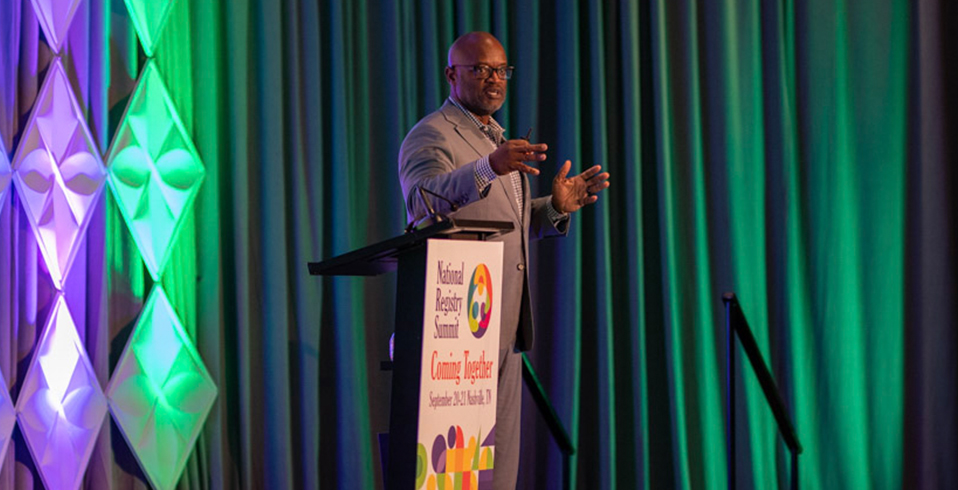National Registry Sponsors Come Together for Annual Summit
SHARE:
This year, the National Registry Summit was held in-person, in Nashville, TN, September 20-21, after two years of virtual conferences. As Registry Sponsors came together from across the country, the Summit examined generational trends in learning, uncovered ways to engage an audience, reviewed matters that affect a CPA’s compliance with rules and regulations, and much more. Following the interactive sessions, attendees had a chance to network with fellow Sponsors and explore Music City.
Included in this year’s programming was the opportunity to learn from Matt Havens, generation expert, and Cindy Huggett of Hybrid Events. If you have listened to any other discussion about generational issues at work, then you have undoubtedly been told there are four distinct generations operating side-by-side in today’s working world. If you’ve ever been frustrated by how impossible it seems to employ four different strategies to manage four distinct generations, then Havens’ session, Stop Acting Your Age!, was exactly what you needed. Havens’ energy and fun could be felt throughout the ballroom.
First, Havens discussed the “matures,” Baby Boomers, Generation X, Generation Y and Generation Z. According to Havens, and contrary to what most believe, there are only two groups individuals are categorized as: a young person or an old person. To better understand why each group is the way they are, we must first understand each other. Studies show we can maintain caring, personal relationships with roughly 150 people. However, one of the greatest inventions that shaped young people was the introduction of the internet. Today, nearly two million articles are uploaded to the web each day. Younger people’s world has always been global, whereas older people had the opportunity to grow up within smaller communities. So, how can the older generation meet the younger folks halfway? Remember, loyalty is earned and should not be assumed.
In Huggett’s interactive session, Trends in Training: Creating Successful Hybrid Learning Events, she discussed trends and best practices for simultaneous in-person and virtual learning environments. Between in-person and remote work lives a hybrid schedule. As such, the big question was, “What do the best training facilitators do to engage a hybrid audience?”
According to Huggett, her definition of hybrid is a synchronous event with some attendees together, and others remote. Step one in creating a successful hybrid event is determining what hybrid means for your organization and audiences. Huggett recommended focusing on content, activities and tech. Additionally, keep in mind that some studies show multitasking happens more often during morning meetings. So, when planning a hybrid learning event, try not to begin first thing in the morning. The presentation was timely and impactful, and Huggett’s insights were well received by Summit attendees.
In addition to the keynote speakers, NASBA’s Senior Regulatory Counsel Elizabeth Wolfe, Esq., lead a discussion on recent trends in state legislation and regulatory rulemaking concerning CPE for CPAs. As covered in Wolfe’s presentation, states that incurred changes since the previous Summit included Alaska, Arizona, California, Colorado, Florida, Hawaii, Illinois, Indiana, Iowa, Kentucky, Michigan, Missouri, Ohio, Rhode Island, Tennessee and Texas. Next, she informed attendees about four legislative updates that have occurred since the previous Summit. In closing, Wolfe discussed today’s accessibility considerations. She playfully said, “This is something I could spend a whole hour talking about how accessibility and the Americans with Disabilities Act (ADA) comes into play in the digital world, however, I have about 10 minutes.” Instead, she provided attendees with links with additional information. So, why is accessibility important to CPA CPE Sponsors? Inclusivity and compliance. NASBA is certainly fortunate to have Wolfe, and her knowledge of the legal system’s everchanging guidelines, on its team.

